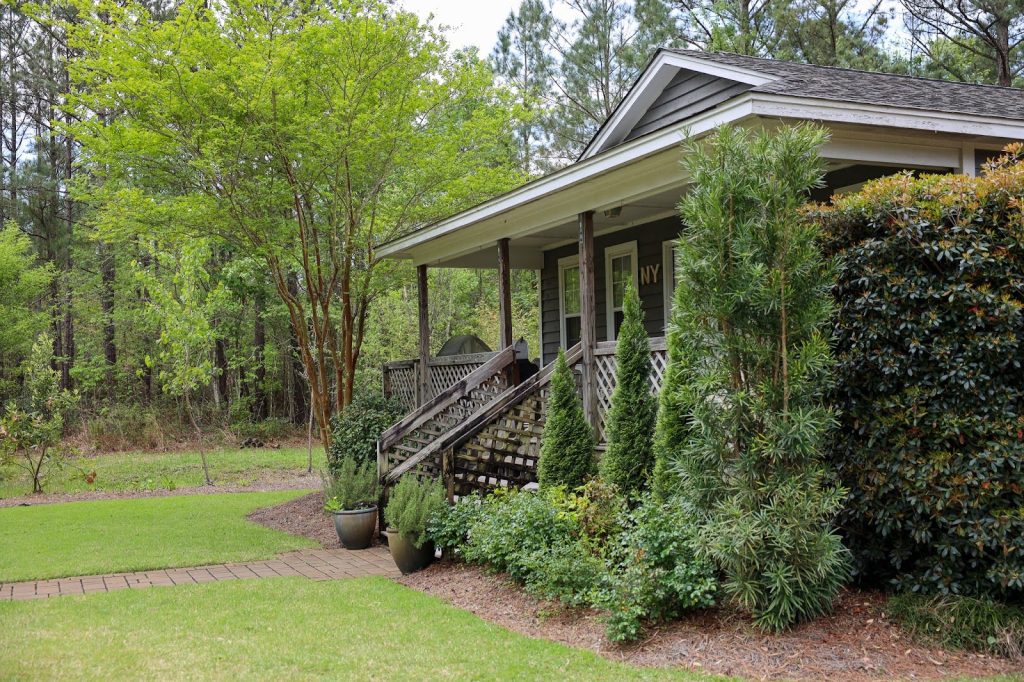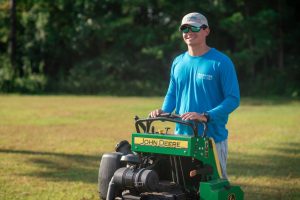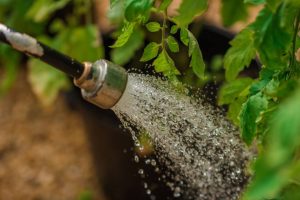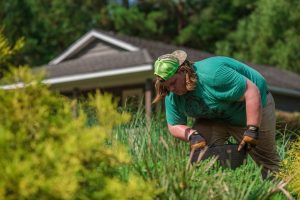Fall Gardening Tips with CFCC’s Landscape Gardening Program Director

As the leaves start to change and Halloween approaches, it’s the perfect time to give your garden a little love! Ken Wells, the Program Director of Landscape Gardening at Cape Fear Community College, has some great tips to help you make the most of your outdoor space this fall. Whether you’re looking to keep your lawn healthy or get some tasty vegetables growing, Ken’s advice will help you avoid common mistakes and enjoy the beauty of the season. Here are his top tips for fall gardening!

Skip the Winterizers
Avoid winterizers for your lawn! These products are for cool season turf, which is popular west of Interstate 95. Local big box stores often have their marketing and orders determined by distant corporate offices. Lawn winterizers are high in nitrogen, a nutrient that will encourage turf to keep on growing and not slow down for winter. Our warm-season turf naturally goes dormant in the winter and turns brown. The added late-season nitrogen slows them entering dormancy and puts them at risk for winter injury.
Apply Potash for Resilience
What should I do to the lawn in the fall? Putting out a little potash (potassium) on lawns or any plant in the yard will promote winter and cold hardiness in plants. NC State recommends 1 pound of potassium per 1,000 square feet of lawn. This will not stimulate excess growth in the plant and will promote the build-up of carbohydrates in the plant, which act as a natural antifreeze for the occasional winter days that dip into the low 20’s.

Adjust Your Watering Habits
Turn off the sprinkler system! if you’re still irrigating this time of the year, you’re likely over watering. Now all things are relative if you live in Wrightsville Beach or Carolina Beach you may need to still water a little, or if we have a warm week and no rain. Most plants preparing for winter dormancy do better with a little less water now than during the growing season.
Avoid Over-Pruning
Don’t be a fall Edward Scissorhands. By now many landscapes are looking overgrown and unkept. Now that the temperatures have become more comfortable, there is a natural yearning to get back out in the garden. But resist the temptation to butcher your bushes. Doing a little nip and tuck to the occasional unrulily branch is fine. But we don’t want to give our trees or shrub a major trimming.
Most spring-blooming plants like azalea, dogwood, pittosporum, and Indian hawthorn have developed the majority of their flower buds by now, so aggressive pruning will remove your spring flowers. Additionally, late pruning tends to induce a growth response in plants. Wait for spring to do the majority of your pruning.

Plant Fall Vegetables
Get your fall vegetables planted before it’s too late! That’s right. Gardening in the fall can actually be much more rewarding than a traditional spring garden. The bugs and disease pressure aren’t nearly as intense. With the evenings finally getting cooler, many vegetables are in their happy zone again. Many vegetables struggle with the heat, humidity, and hot nights in the Cape Fear.
Now, don’t expect to have tomatoes for Christmas, but a large variety of cool-season veggies do great here. Old favorites like cabbage, broccoli, collards, lettuce, peas, carrots, onion, leeks, and radishes do great in the fall garden. But starting some of these from seed might have you planting in November. Fortunately, places like Lowes and Home Depot have plants that can be installed in their garden center area. Hurry before your neighbors beat you to all the best plants.

